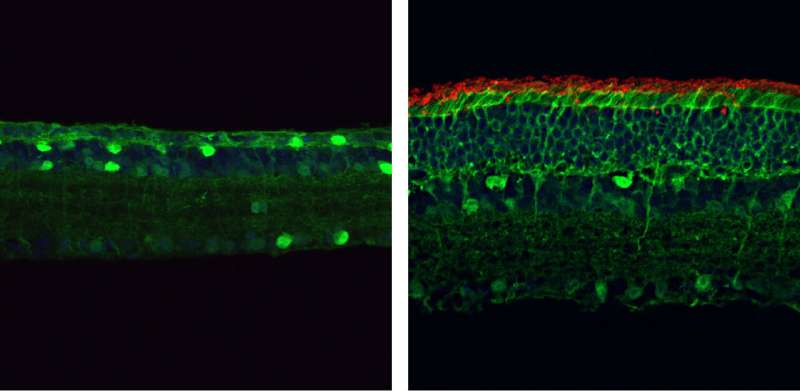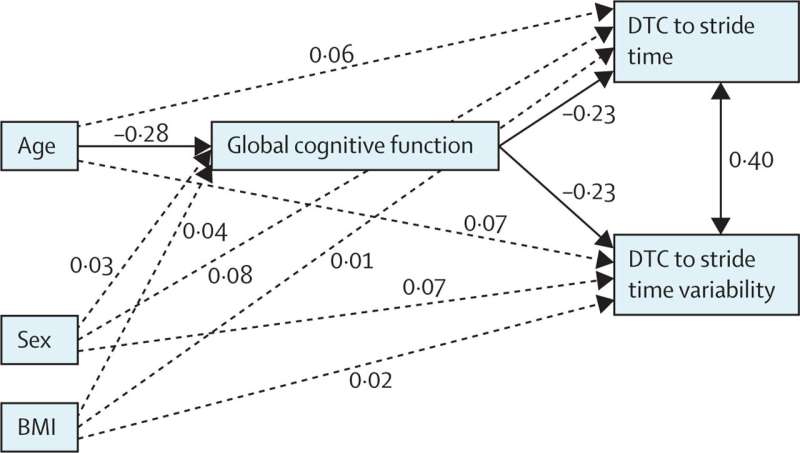
Researchers in China have effectively restored the imaginative and prescient of mice with retinitis pigmentosa, one of the most main reasons of blindness in people. The find out about, to be revealed March 17 within the Magazine of Experimental Drugs, makes use of a brand new, extremely flexible type of CRISPR-based genome enhancing with the possible to right kind all kinds of disease-causing genetic mutations.
Researchers have prior to now used genome enhancing to revive the imaginative and prescient of mice with genetic sicknesses, equivalent to Leber congenital amaurosis, that have an effect on the retinal pigment epithelium, a layer of non-neuronal cells within the eye that helps the light-sensing rod and cone photoreceptor cells. Then again, maximum inherited kinds of blindness, together with retinitis pigmentosa, are led to by means of genetic defects within the neural photoreceptors themselves.
“The power to edit the genome of neural retinal cells, specifically bad or demise photoreceptors, would offer a lot more convincing proof for the possible programs of those genome-editing gear in treating sicknesses equivalent to retinitis pigmentosa,” says Kai Yao, a professor on the Wuhan College of Science and Generation.
Retinitis pigmentosa can also be led to by means of mutations in over 100 other genes and is estimated to impair the imaginative and prescient of one in 4,000 other people. It starts with the disorder and demise of dim light-sensing rod cells, prior to spreading to the cone cells required for colour imaginative and prescient, in the end resulting in serious, irreversible imaginative and prescient loss.
Yao and associates tried to rescue the imaginative and prescient of mice with retinitis pigmentosa led to by means of a mutation within the gene encoding a vital enzyme referred to as PDE6β. To do that, Yao’s crew advanced a brand new, extra flexible CRISPR gadget referred to as PESpRY, which can also be programmed to right kind many several types of genetic mutation, irrespective of the place they happen inside the genome.
When programmed to focus on the mutant PDE6β gene, the PESpRY gadget used to be ready to successfully right kind the mutation and repair the enzyme’s process within the retinas of mice. This avoided the demise of rod and cone photoreceptors and restored their customary electric responses to gentle.
Yao and associates carried out quite a few behavioral assessments to substantiate that the gene-edited mice retained their imaginative and prescient even into previous age. As an example, the animals have been ready to seek out their approach out of a visually guided water maze virtually in addition to customary, wholesome mice and confirmed standard head actions based on visible stimuli.
Yao cautions that a lot paintings nonetheless must be performed to ascertain each the protection and efficacy of the PESpRY gadget in people. “Then again, our find out about supplies considerable proof for the in vivo applicability of this new genome-editing technique and its doable in various analysis and healing contexts, particularly for inherited retinal sicknesses equivalent to retinitis pigmentosa,” Yao says.
Additional info:
Huan Qin et al, Imaginative and prescient rescue by means of unconstrained in vivo top enhancing in degenerating neural retinas, Magazine of Experimental Drugs (2023). DOI: 10.1084/jem.20220776
Quotation:
New gene-editing approach reverses imaginative and prescient loss in mice (2023, March 17)
retrieved 21 March 2023
from https://medicalxpress.com/information/2023-03-gene-editing-technique-reverses-vision-loss.html
This file is topic to copyright. Excluding any honest dealing for the aim of personal find out about or analysis, no
phase is also reproduced with out the written permission. The content material is supplied for info functions best.
Supply Through https://medicalxpress.com/information/2023-03-gene-editing-technique-reverses-vision-loss.html



